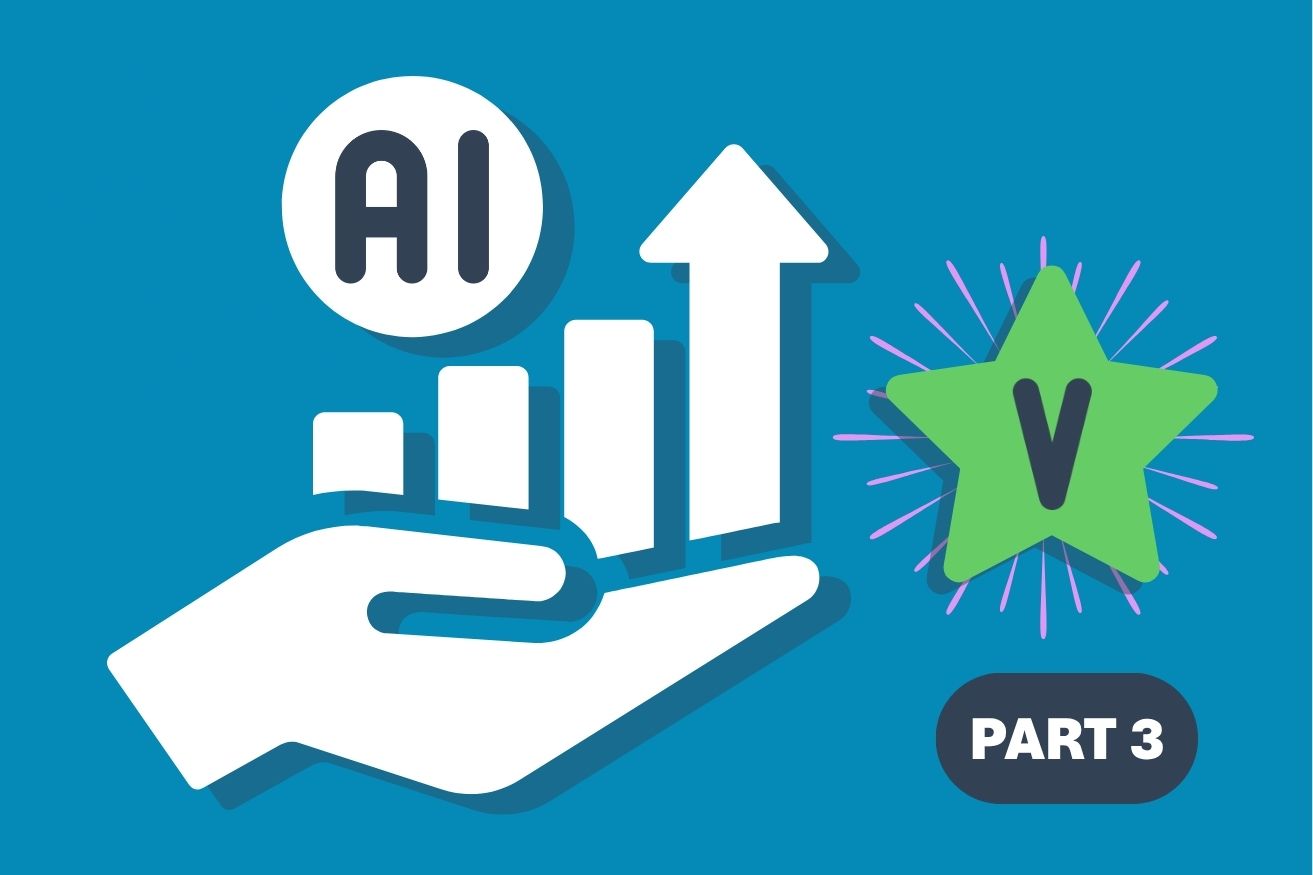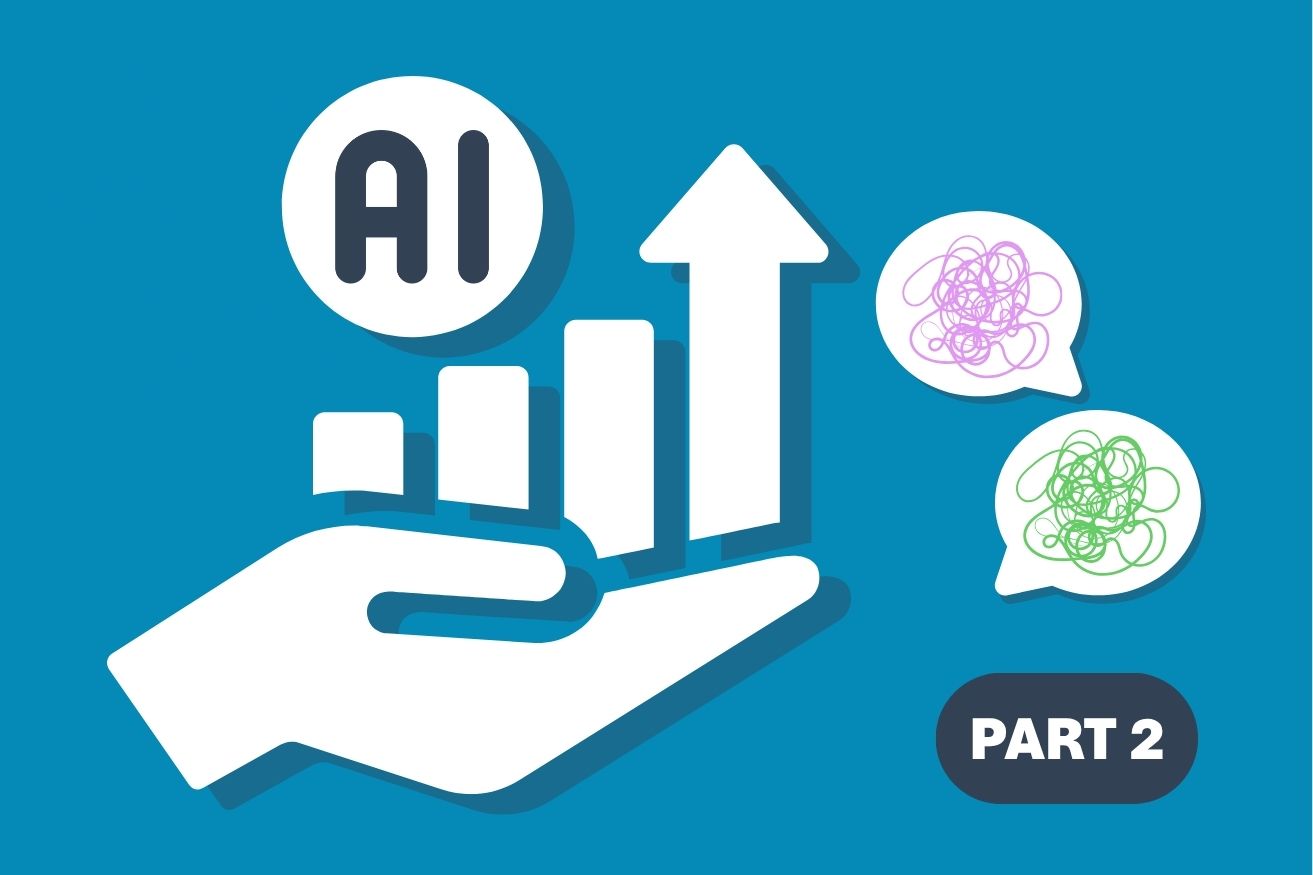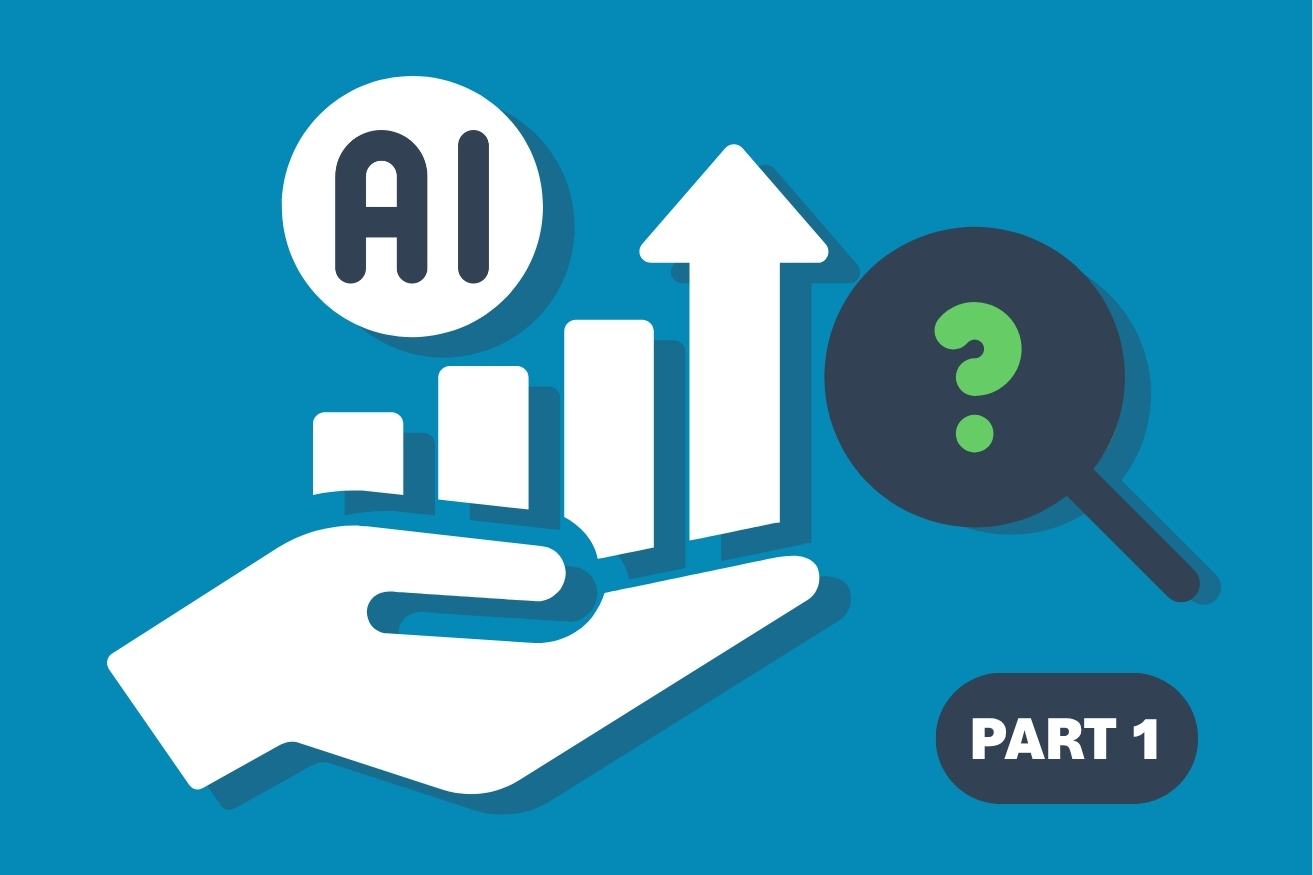Data and AI Stories
Stories of real-world insights shared by industry experts to help you drive business impact on your data and AI journey.
Thank you! Your submission has been received!
Oops! Something went wrong while submitting the form.

Data & AI Strategy
Building the AI-Native Enterprise
Every few decades, a technology comes along that doesn’t just change how companies work, it actually changes what a company is. Max Könnings's latest blog covers what it really means to build an AI-native enterprise, the layers that define it, and what leaders can do to start the shift.

Business Value of Data & AI
From Data to Real Value: Why Context Makes All the Difference
Data in itself does not yield anything. Netherlands-based training institute, Outvie, interviewed our CEO & Co-Founder, Nadiem von Heydebrand, and our partner from Systemation, Kees Gelderblom. They both shared their perspectives on “it’s all about what you do with it and in what context you do it”.

Business Value of Data & AI
The Holy Grail of Value-First AI: Measuring Success
After the initial excitement about what’s possible with AI, the same question about it's success always emerges. Marius Försch explains that when you've done the hard work of defining value up front and ensuring the business shares ownership of outcomes, the measurement question becomes easier to answer.

Business Value of Data & AI
Skin in the Game, Dear Business: Why AI Value Demands Shared Ownership
No skin, no game. AI value requires more than technical brilliance. It requires organizational transformation. In this second blog of the Value-First AI series, Marius Försch explains that transformation from AI only succeeds when the business puts its weight behind it.

Data & AI Impact Management
Your Data and AI Use Cases Need Better Management
Most data and AI leaders don't struggle with a lack of ideas. They struggle with too many. But instead of accelerating impact, this abundance creates fragmentation. In this blog, Henar Alonso Ruiz explores why use case management is the quiet foundation that separates reactive data and AI teams from strategic ones.

Business Value of Data & AI
AI Without a Value Hypothesis is Just an Experiment
AI has moved beyond experiments. It’s now an operational driver of business impact. In this blog, Marius Försch introduces the Value-First AI Framework and argues that every AI use case must begin with a clear value hypothesis, a shared understanding of how the use case will generate measurable business outcomes.

Data & AI Impact Management
What is Data and AI Impact Management?
AI is no longer a side project or a research experiment, and organizations are under more and more pressure to prove results from their investments. In this blog, Nadiem von Heydebrand introduces Data and AI Impact Management. It provides the missing strategic management layer that connects technical execution with business outcomes.

Mindfuel's platform
Designing AI Agents for Data-Driven Decision Making
The gap between “data” and “impact” has been around for years. Dashboards multiply, reports pile up but decision-making often happens without the data in the room. In his latest blog, Max Könnings, CPO at Mindfuel, shares why AI decision-making tools matter now and how Mindfuel’s Value Agent helps teams define, track, and realize measurable value.

Mindfuel's platform
Beyond Architecture: How Mindfuel Powers AI Execution Where EAMs Don’t
Enterprise Architecture Management (EAM) tools weren't built for the dynamic, iterative nature of data and AI initiatives. In this blog, Jonathan Orschiedt explores why data teams need a purpose-built solution like Mindfuel to drive real business impact.

Business Value of Data & AI
Value First, AI Second: A 3-Step Guide to Help Data Leaders Demonstrate AI Business Value
For many teams, AI-first has meant investing in tools, building models, and launching pilots. But there’s always that critical question: Where’s the value? In this blog, Dr. Andreas Mazat shares a practical 3-step framework for data leaders to make the AI business value visible.

Mindfuel's platform
Beyond Roadmaps: Why Mindfuel is Built to Steer Data Portfolios
Roadmaps are great, but when it comes to data and AI initiatives, roadmaps alone don’t cut it. In his latest blog, Jonathan Orschiedt explains why traditional prioritization tools fall short for data and AI teams – and how Mindfuel helps you move beyond planning into strategic portfolio management.

Business Stakeholder Management
The Hidden Skill Every Data Team Needs: Effective Stakeholder Communication
Ultimately, the impact and recognition of your work depends not only on the quality of your models or platforms, but on how well you align with the people they’re meant to help. Jonathan Orschiedt explains why communication is the hidden superpower of data teams.

Mindfuel's platform
Why McKinsey's Vision for Data Products is Already a Reality in Mindfuel
Did we have a data breach? Nope – we just have the same perspectives as McKinsey. Our CPO, Max Könnings, breaks down how McKinsey’s recommendations are already a reality in Mindfuel.

Data & AI Strategy
Rethinking AI Strategy: The Cost Minimization Lens For AI Leaders
AI teams are under pressure – to innovate, to scale, to show value. But here’s the catch: most are still seen as cost centers, not value engines. In his latest blog, Marius Försch flips the script: What if the smartest AI strategy isn’t about chasing more value – but about minimizing costs?

Mindfuel's platform
Steering, Not Just Sprinting: Mindfuel as the Strategic Layer on Top of Jira & Friends
Sprinting is important. But steering? That’s what separates busy teams from impactful ones. In his latest blog, Jonathan Orschiedt shares why task management tools like Jira are great for execution but not enough when it comes to steering high-impact data and AI portfolios.

Data & AI Strategy
Enterprise AI: When the Stardust Settles, Data Wins
GenAI is here to stay and, soon, the focus will shift from flashy prototypes to real impact. In this blog, Marius Försch explains that when that happens, enterprises with real, well-governed, accessible data will be the ones who win.

Data & AI Impact Management
Mind the Gap: Aligning AI Investments with Strategic Goals
Are your AI initiatives solving the right problems? Too many organizations invest heavily in AI without a clear link to business strategy. In the blog, Nadiem von Heydebrand explores why AI initiatives often fail to deliver real impact, and what organizations can do to fix it.

Data & AI Impact Management
The Harvest After the Hype: AI’s Reality Check and What Comes Next
The AI hype is over. But the real value? That’s just getting started. In this blog, Nadiem von Heydebrand unpacks what comes after the hype and how companies can transition from experimentation to execution.

Data & AI Strategy
Embracing the Complexity of Enterprise AI
When done right, enterprise AI isn’t just about efficiency, it can truly reshape entire businesses. Marius Försch breaks down the challenges and offers a structured approach to getting AI initiatives across the finish line.

Culture & Company
Lost in Translation? Harnessing the Power of Intercultural Communication
The world is more connected than ever. At Mindfuel, we are thriving because of our diverse, global team. Veronica Huitzil explains why intercultural communication is so vital to build a thriving, inclusive workplace.

Business Value of Data & AI
Can You Explain the Value of Your Data Team in 60 Seconds?
Can your data team explain its value in 60 seconds? Can you deliver a clear, impactful answer that connects to business outcomes? Jonathan Orschiedt explores why this is a challenge and how to overcome it.

Data & AI Strategy
Less is More: Avoiding the Data Product Death Trap
Don't fall into the data product death trap. In this blog, Max Könnings explores why focusing on fewer, better-quality data products helps you to reclaim your capacity, rebuild stakeholder trust, and create a culture where you’re prioritizing impact.

Culture & Company
The Heartbeat of Remote Work: Bringing Company Values to Life at Mindfuel
In a world where Team meetings and Slack messages are the new water cooler conversations, company culture can sometimes feel like an elusive concept. Veronica Huitzil shares the team's experience exploring Mindfuel's Values at the latest team offsite.

Data & AI Strategy
The Evolving Role of a CDO in a Data-Driven World
The role of a Chief Data Officer (CDO) is as challenging as it is rewarding, offering endless opportunities to impact organizations meaningfully. Eloy Sasot dives into his experiences and insights as a CDO.

Data & AI Strategy
Navigating AI Compliance with Mindfuel: A Simplified Approach to the EU AI Act
With great power comes great responsibility, especially when it comes to navigating the complex web of regulations surrounding AI use.

Data & AI Strategy
Why the World Needs Datapreneurs
The Datapreneur envisions a product's greater purpose, always mindful of user preferences, creating business-critical success accordingly whilst understanding and tackling the challenges of the data world in practice.








